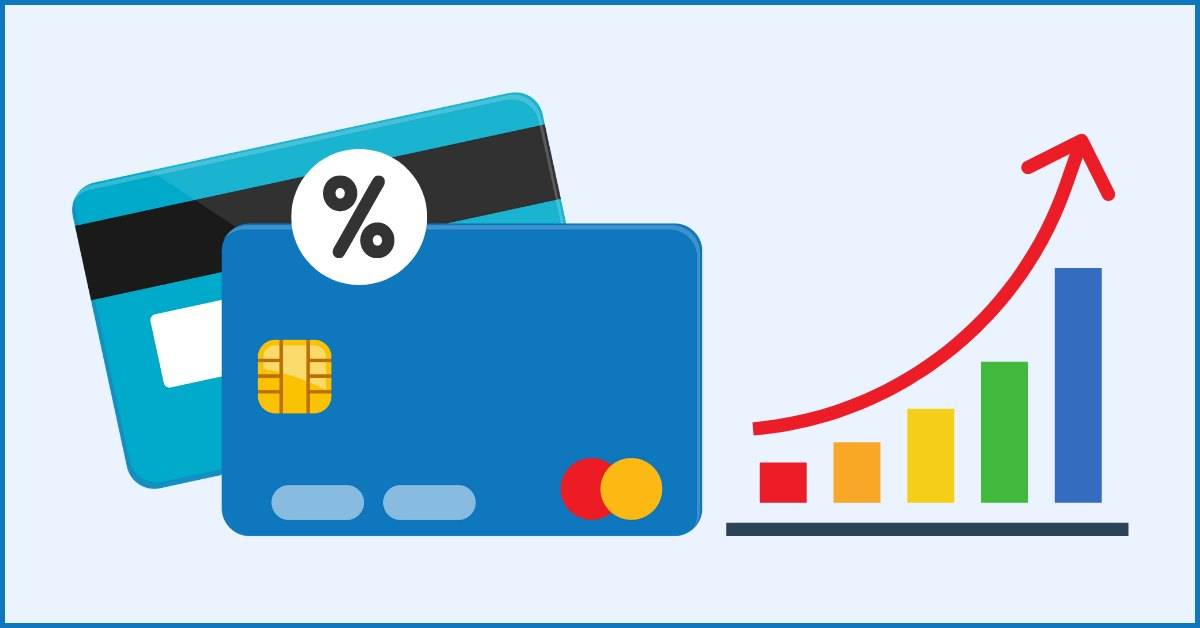
5 Secret Credit Card Tricks Banks Don’t Want You to Know
 By Rahul Sharma
By Rahul SharmaCredit cards can be a double-edged sword, offering convenience and rewards while also leading to potential debt if not managed wisely. Many people are unaware of the hidden tricks and tactics that credit card companies use to maximize their profits. In this article, we’ll uncover five essential tricks that banks don’t want you to know, enabling you to take control of your finances and make the most of your credit cards.

You Can Negotiate Your Interest Rate
What You Can Do: If you’ve been a responsible cardholder with a good payment history, don’t hesitate to call your bank and ask for a lower interest rate. Many card issuers are willing to negotiate to retain good customers.
Why It Matters: A lower APR can significantly reduce the amount you pay in interest, especially if you carry a balance. This simple step can save you hundreds or even thousands of dollars over time.

Understanding Minimum Payments
The Truth About Minimum Payments: Recent trends show that credit card companies have reduced minimum payment percentages. Instead of the traditional 5%, some cards now allow payments as low as 1% or a flat fee of $20, which can keep you in debt much longer.
Impact on Debt: Paying only the minimum can lead to a prolonged repayment period and substantial interest payments. For instance, a $5,000 balance at 18.9% APR paid at 2% per month could take over 30 years to pay off, costing you more than $19,500 in interest.


The Power of Rewards Points
Maximizing Rewards: If your credit card offers rewards points, consider transferring them to travel partners for enhanced value. For example, redeeming points for travel can sometimes yield 2 cents per point, compared to 1 cent when redeemed for cash.
Beware of Expiration: Check for expiration dates on rewards points, especially with retailer-specific cards. Some points can expire if not used within a certain timeframe.
You might also like
1. Top 5 US Banks with the Best Customer Service in 20242. The Future of Banking in the U.S.: Digital vs. Traditional3. The Pros and Cons of Investing in Gold and Precious Metals4. Budgeting for Beginners: How to Start and Stick to It
Using Balance Transfer Checks Wisely

What They Are: Credit card companies often send balance transfer checks to entice you to use them for significant purchases or debt consolidation.
Caution: While these can offer low or 0% interest for a promotional period, always read the fine print. Using these checks without understanding the fees can lead to unexpected costs and more debt.

Automatic Payments Are Your Friend
Stay on Track: Setting up automatic payments for at least the minimum amount can help you avoid late fees and potential damage to your credit score.
Flexibility: Many banks offer the option to automatically pay the full balance, ensuring you avoid interest charges altogether. You can also adjust the amount or set reminders to check your account before payments.

Understanding these hidden tricks can empower you to manage your credit cards more effectively and potentially save you a lot of money. Don’t let credit card companies dictate your financial health; take charge by negotiating rates, understanding your payment options, and maximizing rewards.
About the author
 By Rahul Sharma
By Rahul SharmaRahul Sharma is a seasoned finance writer with over 8 years of experience helping millennials and Gen Z take control of their money. With a background in economics and a passion for demystifying complex financial concepts, Ananya shares actionable tips on budgeting, investing, and building long-term wealth. Her mission is to make financial literacy accessible, relatable, and empowering — no jargon, just smart money moves.
More like this

Government Policies and Their Effect on Personal Finances
Government policies play a crucial role in shaping personal finances, influencing everything from taxes and interest rates to employment opportunities and social benefits. Understanding these policies can help individuals make informed financial decisions.

The Role of Cryptocurrencies in the American Financial System
Cryptocurrencies have become an integral part of the American financial system, influencing investment strategies, payment solutions, and regulatory policies. As digital assets gain mainstream acceptance, their impact continues to grow.

How to Build a Strong Investment Portfolio in the U.S.
Building a strong investment portfolio requires strategic planning, diversification, and a clear understanding of financial goals. A well-structured portfolio helps manage risk while maximizing returns over time.

Best High-Yield Savings Accounts in the USA
High-yield savings accounts offer a great way to grow your money with competitive interest rates while maintaining easy access to your funds. Choosing the right account can help maximize your savings potential.

Personal Finance Tips for Managing Debt in the U.S.
Managing debt effectively is crucial for financial stability. By implementing smart strategies, individuals can reduce their financial burden and work toward a debt-free future.

The Impact of Interest Rate Changes on Loans and Mortgages
Interest rates play a crucial role in determining the cost of borrowing money for loans and mortgages. Changes in interest rates can significantly impact monthly payments, affordability, and long-term financial planning.

Understanding Credit Scores: How to Improve Yours
Your credit score plays a crucial role in financial health, affecting loan approvals, interest rates, and even job opportunities. Understanding how credit scores work and how to improve them can lead to better financial stability.

Retirement Planning: Best Strategies for Americans
Planning for retirement is essential to ensure financial security in later years. By adopting smart strategies, Americans can build a comfortable nest egg and enjoy financial independence.

How Inflation Affects Your Savings and Investments
Inflation erodes the purchasing power of money, making it a crucial factor for savers and investors. Understanding how inflation impacts savings and investments can help you make informed financial decisions.

The Future of Banking in the U.S.: Digital vs. Traditional
The U.S. banking industry is undergoing a major transformation with the rise of digital banking. Traditional banks face increasing competition from online financial institutions, leading to a shift in how consumers manage their money.

Managing Debt in the USA: Tips for Financial Freedom
Debt can be a major financial burden, but with the right strategies, you can regain control and achieve financial freedom. Understanding how to manage and reduce debt effectively is key to long-term financial stability.

Top Investment Opportunities in the U.S. for 2025
The U.S. investment landscape is evolving rapidly, offering new opportunities across various sectors. As 2025 approaches, investors can explore emerging trends and strategic investments to maximize their financial growth.





